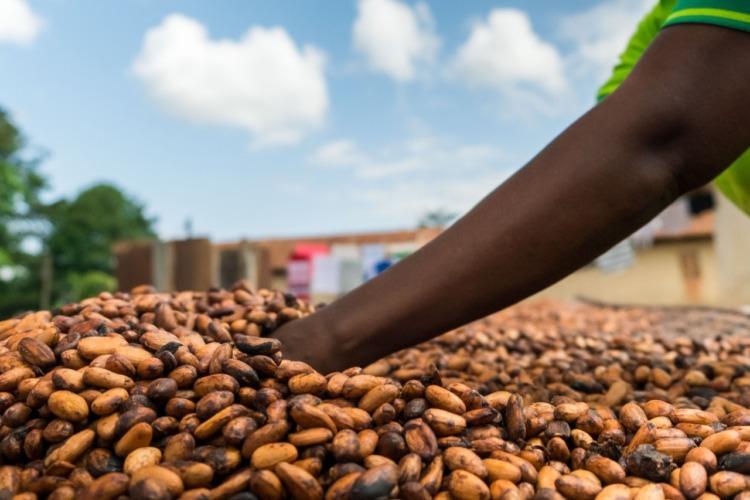Fairtrade International has committed to double the average income of farmers and workers in Africa.
Speaking during the ongoing 7th Africa Fairtrade Conference, Fairtrade International Board Chair Lynette Thorstensen said despite the hard times brought about by Covid-19, there is hope for the future of African farmers.
“This has been a very tough year globally, however, let us look at the future with optimism,” she said.
According to Thorstensen, Fairtrade International set aside a Covid relief fund in which more than 10.5 million Euros was raised by external governments, retailers, crowdfunding as well as internal sources by pledges from members for relief and resilience support for producer organisations.
“A total of 337 producer organisations from 17 countries have benefited from the fund. We believe that in the current climate, we need to move faster and ensure no one gets left behind.”
Speaking at the same event, Mary Kinyua, the Fairtrade Africa Board Chairperson, urged African governments to increase the amount of funding allocated to the agriculture sector.
“Agriculture remains the major source of economic growth around the continent contributing to the 14 percent GDP, governments therefore need to ensure they allocate enough funding in order to grow this sector,” she said.
Kinyua said the organization is working towards creating a world in which farmers can have sustainable livelihoods through the 2021 -2025 strategic plan.
The Fairtrade Africa’s strategic plan promises to invest in transformation and resilience to impact on farmers’ and workers’ livelihoods.
This promise is anchored in four mutually inclusive strategic pillars that include Product and Market Development, Policy & Advocacy, Sustainable Farming Systems and Transformed and Strengthened Producer Organizations.
“These pillars not only cherish the aspirations of the Fairtrade International’s Strategic Plan, but align to its philosophy. The primary focus of championing decent livelihoods and living incomes and wages for farmers and workers has directed the choice of these strategic pillars,” Kinyua explained.
Fairtrade International also revealed that it had spent more than 4.9 million Euros, or Sh630.5 million by November last year, to provide immediate relief to producers of agricultural products across the continent.
Norman Katihvu, the Youth Representative and Fairtrade Africa Board Member said that the funds were also used to support the prevention measures of further spread of the pandemic on producers who remained at risk.
Katihvu said the amount had been spent on producers in nine countries in Africa namely, Kenya, Uganda, Rwanda, Tanzania, Cote d’Ivoire, Ghana, Madagascar, Malawi and South Africa.
Apart from helping producers recover from economic losses due to COVID-19, the funding was also given to assist producers maintain and diversify their supply chain relations, and ensure business continuity, food security and income generation.
The funding, which was secured by Fairtrade International, was provided by The Federal Ministry for Economic Cooperation and Development (BMZ) with cooperation from The German Development Agency GiZ.
On her part, Common Market for Eastern and Southern Africa (COMESA) Chilese Kapwepwe emphasized on the importance of private public partnerships in achieving Africa’s ambitions of regional trade and overall growth.
“The theme ” Producers leading the future of trade” will be cross-cutting, highlighting the issues of trade agreements, trade policy, pricing and value chain dynamics that call for decisive action by the relevant stakeholders. Placing the farmer voice at the heart of all trade transactions, policy and development by highlighting how producers are impacted in current trade,” Kapwepwe added.
Agriculture in Africa has a massive social and economic footprint. According to Mckinsky, more than 60 percent of the population in sub-Saharan Africa is smallholder farmers, and about 23 percent of sub-Saharan Africa’s GDP comes from agriculture.
The research firm states that Africa could be two to three times more productive if it intensified its Agricultural productivity.
“Africa’s exports of food and agricultural products are worth between $35 billion and $40 billion a year, and some $8 billion a year flows through intra-regional trade in these products. In addition, Africa’s food and agricultural imports amount to between $45 billion and $50 billion a year—along with $6 billion a year in imports of agricultural inputs,” the firm said.
The Fairtrade Convention comes at a times amid the coronavirus pandemic that has impacted most sectors across major economies in the world.
Data by McKinsey indicates that COVID-19 has created significant demand-side pressure that may worsen food insecurity on the continent owing to loss of incomes and potential food price increases caused by localized supply shocks and depreciating currencies.
